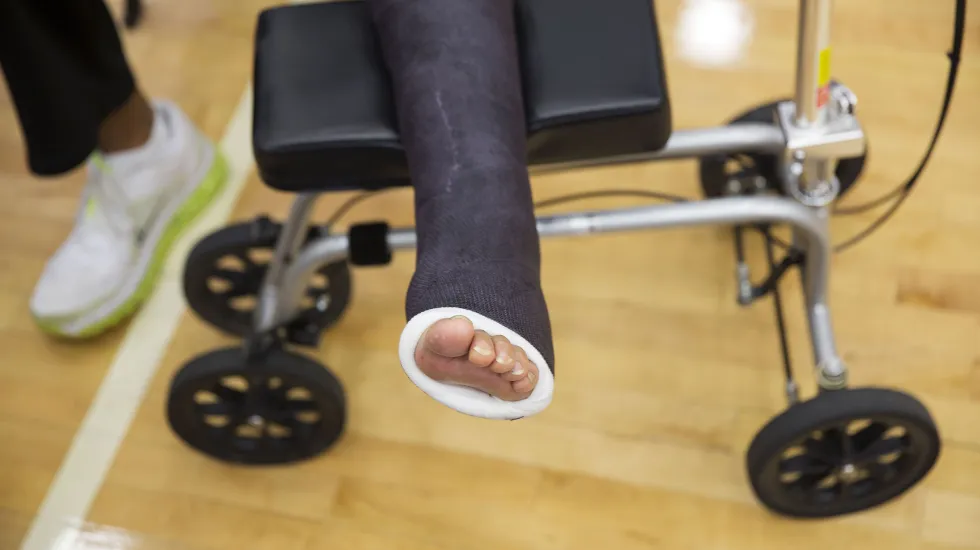
It’s a weekend warrior’s nightmare. You’re playing basketball in the driveway, go up for a lay-up and, on landing, hear a pop.
You’ve torn an Achilles tendon. Now, do you have surgery? Or hope it heals with just a cast and rehab?
New research, published by the New England Journal of Medicine, found there were only slight differences in how well people who’d suffered a torn or ruptured Achilles had recovered about a year later no matter which treatment they received.
The Achilles tendon — which connects the muscles in the back of the calf to the heel bone — is the most commonly torn tendon. Most tears are due to trauma or accident while playing sports, with men much more prone than women to suffer this type of injury.
In the biggest-ever study investigating which treatment is best, scientists in Norway tracked 526 patients — mostly men with an average age of 39 — who ripped their Achilles tendon. They had minimally invasive surgery, standard surgery or non-surgical treatment — a brace to immobilize the affected foot and physical therapy. All got rehab therapy and were told to avoid risky activities for six months.
There were more people who re-injured their Achilles tendon among those who didn’t have surgery — 6.2% versus 0.6% of those who had an operation.
And there were more nerve injuries reported in those who had surgery. About 5% of those who had the minimally invasive surgery reported nerve injuries afterward, compared to 2.8% of those who had the standard surgery and 0.6% of those who skipped surgery.
Dr. Stale Myhrvold, the study’s lead author, said that for people to successfully skip surgery, patients need to have their affected foot in a brace early — within the first three days.
“Most acute Achilles tendon ruptures in adults can be treated non-operatively,” he said. “Most of my patients choose non-operative treatments after receiving this information.”
“For the average person, who is not a high-performance athlete, there is no need to have surgery,” said Dr. Matthew Costa, a professor of orthopedic trauma surgery at the University of Oxford who wasn’t part of the study.
Costas said the only benefit to an operation might be to avoid the chance of a repeat injury but said the chances of that were similar to the risk of a standard complication from surgery, like a wound infection.
He also said surgery could be helpful in other cases, including for people who don’t realize they’ve torn the tendon until long after the injury.







